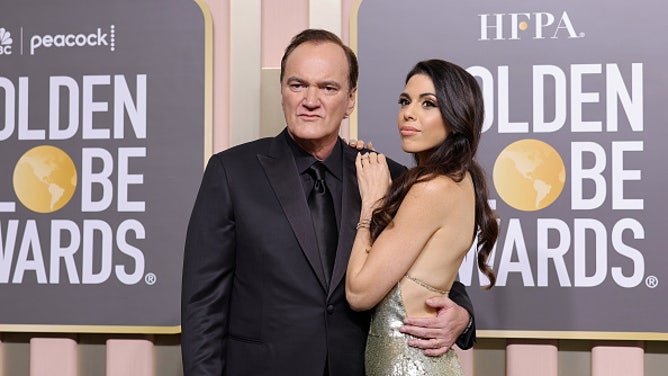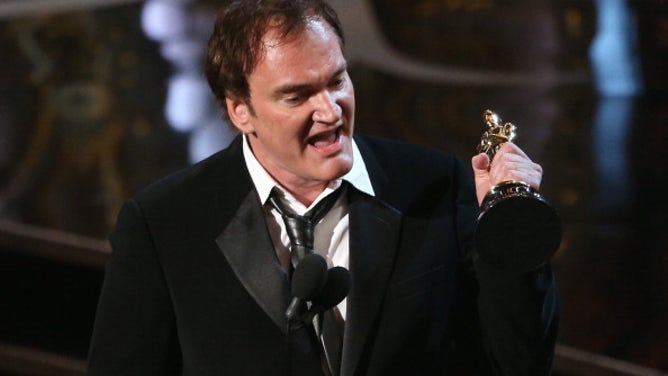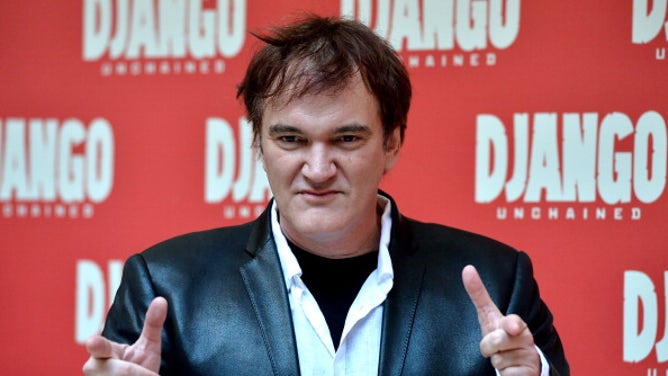Quentin Tarantino Said He'd Still Make 'Django Unchained' In The Age of P.C. Culture and That No One Cares About B.S. Think Pieces
Quentin Tarantino is one bad muthaf***a.
Pushback against the legendary director and screenwriter has increased relative to the rise of outrage culture. Despite all the criticisms of his movies, Tarantino would make them all over again if he had the chance, no matter the difference in the political climate.
A video of Tarantino's sit-down with Howard Stern from 2021 made the rounds on Thursday, with a swell of support building for Tarantino after stating that people (especially filmmakers) have to possess the cajones to make impactful or controversial movies, regardless of the ephemeral outrage that may come with it.
When asked if he could still make Django Unchained (2012) today — a movie centered on a black slave played by Jamie Foxx as the protagonist, which many deemed problematic — Tarantino said it's certainly possible.

(Photo by Amy Sussman/Getty Images)
Stern asked, "Can you even make Django Unchained today? I don't even think you co-"
"Yeah! I could!" Tarantino sharply responded.
Stern added, "I don't know, the political correctness now. It's just brutal."
Tarantino didn't just vie for movies of his interest to be made; he argued that all of the responses to the movie, be they positive or negative, incite conversation, which is far more important than tapering content according to what's deemed politically correct.
"Yeah, we had bad think pieces, but bad think pieces are actually good. That means your movie is about something. That means that they're having a conversation about your movie. That means that you're part of the zeitgeist.
"Now you have to have the balls and the shoulders to handle those bad pieces. There's usually good reviews that go along with it. And now when it's over, no one remembers those f***ing pieces, but they remember the conversation."
Take it from a director whose 11 movies have garnered a whopping $1,970,988,239 total at the worldwide box office. And the great irony was that the same industry whose claim to moral superiority started the backlash against Tarantino also awarded him with Best Writing, Original Screenplay for Django at the 2012 Oscars.

(Photo by Mark Davis/WireImage)
Around the time Django was released, people bad-mouthed it for its liberal use of the N-word (~110 times) — a device meant to suit the lexicon of the Old South prior to the Civil War.
Actors of color came to Tarantino's defense for the honest portrayal rather than bending a knee to the critiques. Django supporting actor Samuel L. Jackson called it a travesty that the use of the term was the greater takeaway of the critically hailed film when other forms of media received a pass for the same thing.
"When you have a song that says n***** in it 300 times nobody says s**t," Jackson told IndieWire.

"So it’s okay for Steve McQueen to use [the N-word] because he’s artistically attacking the system and the way people think and feel, but Quentin is just doing it to just strike the blackboard with his nails. That’s not true. There’s no dishonesty in anything that writes or how people talk, feel, or speak ."
The director's crux: never surrender a vision in favor of petty grievances, as long as there's a respectable intention behind it.